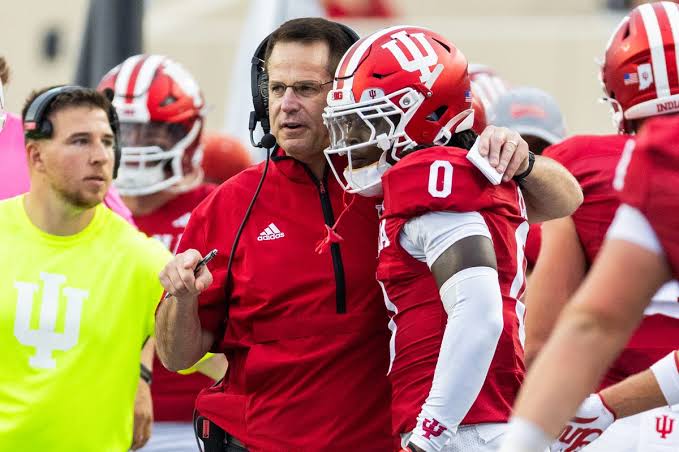The first-year head coaches in college football for 2024 presented a mix of notable stories.
There were some high-profile transitions between Power 4 programs, such as Kalen DeBoer leaving Washington, the national runner-up, to replace Nick Saban at Alabama, and Jedd Fisch departing a 10-win Arizona squad to take over in Seattle. Bill O’Brien, a coach with extensive experience in both college football and the NFL, returned to his hometown to lead Boston College. Mike Elko and Jonathan Smith, known for achieving success at Duke and Oregon State, respectively, moved on to higher-profile jobs at Texas A&M and Michigan State.
The coaching carousel also included promotions, like Sherrone Moore’s move from national champion Michigan to Big Ten newcomer UCLA, and Indiana hiring veteran Curt Cignetti, who spent much of his career coaching at lower division schools. Syracuse chose Fran Brown, an elite recruiter with just one year of coordinator experience, to lead the program.
Who excelled? Who struggled in their first season? It’s time to review the first-year coaches in the major conferences, reflecting on how they were initially assessed.
DeShaun Foster, UCLA Bruins
Hiring grade: B
Initial assessment: Although Foster was a late-cycle hire, he was expected to face some growing pains, especially as UCLA adjusted to the Big Ten. However, his energy and enthusiasm were seen as a welcome change after Chip Kelly, and the Bruins’ personnel situation was projected to improve under his leadership.
Year 1 record: 5-7
Year 1 grade: B
Review: Foster’s debut was met with some skepticism, but he exceeded expectations despite a tough early season. UCLA started 1-5 but turned things around with key victories over Rutgers, Nebraska, and Iowa, including two road wins. The team stayed competitive even in losses, and linebacker Carson Schwesinger emerged as a national star. Foster’s offseason staff changes suggest more of his influence on the program moving forward, and his overall comfort should increase in Year 2.
Bill O’Brien, Boston College Eagles
Hiring grade: A-
Initial assessment: O’Brien’s name recognition, especially in New England after his time with the Patriots, and his familiarity with the ACC made him an appealing choice. He was expected to elevate Boston College’s recruiting and transfer game.
Year 1 record: 7-6
Year 1 grade: B+
Review: O’Brien’s leadership was evident in his first season, despite some inconsistency. The Eagles began with a strong 4-1 start, including wins over Florida State and Michigan State. However, a midseason three-game losing streak led to a quarterback change, which paid off as Grayson James led the team to victories over Syracuse, North Carolina, and Pitt. Despite a coaching change late in the cycle, O’Brien guided the Eagles to their second consecutive bowl appearance.
Sherrone Moore, Michigan Wolverines
Hiring grade: B+
Initial assessment: Moore’s hiring came with the understanding that Michigan could have chosen a more established head coach, but the timing of Jim Harbaugh’s departure and the program’s situation worked in his favor. The key question was how much patience Michigan would show as Moore adjusted to the role.
Year 1 record: 8-5
Year 1 grade: B-
Review: Moore’s first season was a mix of struggles and strong finishes. Michigan wasn’t fully equipped to contend for the College Football Playoff following their national championship win in 2023, particularly with the loss of quarterback J.J. McCarthy and no major transfer addition at the position. The offense regressed, falling to 130th nationally in passing, and some of Moore’s in-game decisions raised concerns. However, the team rallied in the final stretch to salvage the season, boosting Moore’s overall grade.

Leave a Reply